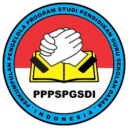Pengembangan Kurikulum Darurat Covid-19 (model dan media pembelajaran pada masa pandemi covid-19)
DOI:
https://doi.org/10.35568/naturalistic.v6i1.1084Keywords:
emergency curriculum, online learning model, learning mediaAbstract
The existence of the corona virus outbreak has affected several sectors including the education sector. In dealing with the spread of the covid-19 virus, the government issued a distance learning policy with an emergency curriculum. The purpose of this study will discuss the models and learning media during the Covid-19 pandemic with library research sourced from research journals, the curriculum used at Al-Fatih Primary Islamic School and other literature that supports this research. The results showed that the emergency curriculum has high flexibility and provides space for educational institutions to develop the curriculum structure up to the evaluation stage. The models used during this pandemic were e-learning, blanded learning and home visits. The learning media used depend on the needs of teachers and students, including zoom, WhatsApp, and other media that can support learning online (online).
Downloads
References
Andayani, Dyah Darma, Fathahillah Fathahillah, and Nurul Mukhlisah Abdal. “Penerapan E-Learning Sebagai Alternatif Pembelajaran Di Masa Pandemi Covid-19.” In Seminar Nasional Pengabdian Kepada Masyarakat, 2020.
Atsani, K H Lalu Gede Muhammad Zainuddin. “Transformasi Media Pembelajaran Pada Masa Pandemi COVID-19.” Al-Hikmah: Jurnal Studi Islam 1, no. 1 (2020): 82–93.
Daheri, Mirzon, Juliana Juliana, Deriwanto Deriwanto, and Ahmad Dibul Amda. “Efektifitas Whatsapp Sebagai Media Belajar Daring.” Jurnal Basicedu 4, no. 4 (2020): 775–83.
Gusty, Sri, Nurmiati Nurmiati, Muliana Muliana, Oris Krianto Sulaiman, Ni Luh Wiwik Sri Rahayu Ginantra, Melda Agnes Manuhutu, Andriasan Sudarso, Natasya Virginia Leuwol, Apriza Apriza, and Andi Arfan Sahabuddin. Belajar Mandiri: Pembelajaran Daring Di Tengah Pandemi Covid-19. Yayasan Kita Menulis, 2020.
Jahrir, Andi Sahtiani, and Muhammad Tahir. “DAMPAK MEDIA APLIKASI ZOOM SEBAGAI MEDIA PEMBELAJARAN ONLINE SELAMA PANDEMI COVID-19.” KLASIKAL: JOURNAL OF EDUCATION, LANGUAGE TEACHING AND SCIENCE 2, no. 3 (2020): 9–18.
Jusuf, Rahmathias, and Asri Maaku. “Kurikulum Darurat Covid 19 Di Kota Kotamobagu; Fenomena Dan Realita Guru Madrasah.” Jurnal Ilmiah Iqra’ 14, no. 2 (2020): 155–70.
Mokodompit, Intan Safitri. “Home Visit Sebagai Refleksi Kurikulum Darurat Covid-19: Kesiapan Guru, Respon Siswa, Materi Dan Hasil Belajar Di Madrasah Tsanawiyah.” Dir?s?t: Jurnal Manajemen Dan Pendidikan Islam 6, no. 2 (2020): 119–31.
Munajim, Ahmad, Barnawi Barnawi, and Fikriyah Fikriyah. “Pengembangan Kurikulum Pembelajaran Di Masa Darurat.” DWIJA CENDEKIA: Jurnal Riset Pedagogik 4, no. 2 (n.d.): 285–91.
Nirmala, Besse, and Haerul Annuar. “Home Visit: Strategi PAUD Dari Rumah Bagi Guru Di Daerah 3T Pada Masa Pandemi Covid-19.” Jurnal Obsesi: Jurnal Pendidikan Anak Usia Dini 5, no. 2 (2020): 1052–62.
Panambaian, Tubagus. “Penerapan Program Pengajaran Dengan Model Blended Learning Pada Sekolah Dasar Di Kota Rantau.” Journal Analytica Islamica 9, no. 1 (2020): 52–68.
Sumantyo, Franciscus Dwikotjo Sri. “Pendidikan Tinggi Di Masa Dan Pasca Covid-19.” Jurnal Kajian Ilmiah 1, no. 1 (2020): 81–92.
Downloads
Published
How to Cite
Issue
Section
License
Copyright (c) 2021 NATURALISTIC : Jurnal Kajian Penelitian Pendidikan dan Pembelajaran

This work is licensed under a Creative Commons Attribution-ShareAlike 4.0 International License.
Copyright of Journal Naturalistic : Jurnal Kajian Penelitian Pendidikan dan Pembelajaran (e-ISSN:2548-8589, p-ISSN:2528-2921).
Open Access Policy
This journal provides immediate open access to its content on the principle that making research freely available to the public supports a greater global exchange of knowledge.
This journal is open access journal which means that all content is freely available without charge to users or / institution. Users are allowed to read, download, copy, distribute, print, search, or link to full text articles in this journal without asking prior permission from the publisher or author. This is in accordance with Budapest Open Access Initiative.






